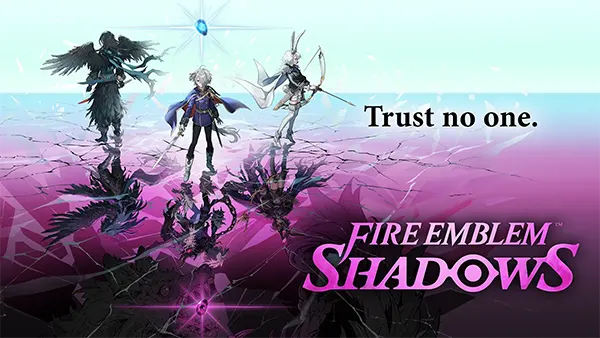
Fire Emblem Shadows: Can Nintendo Successfully Combine Social Deduction and Strategy on Mobile?
Nintendo’s Fire Emblem series has long been praised for its tactical depth, emotional storytelling, and character-driven gameplay. In 2025, the company is reportedly exploring an experimental direction with Fire Emblem Shadows, a mobile title that blends traditional turn-based strategy with social deduction mechanics. This concept has sparked both excitement and scepticism among fans, who wonder whether Nintendo can balance two genres that, until now, have rarely coexisted in one game.
The Evolution of Fire Emblem on Mobile
Since the launch of Fire Emblem Heroes in 2017, Nintendo has maintained a steady presence in the mobile gaming market. Fire Emblem Heroes proved that tactical RPG mechanics could be adapted for shorter play sessions, simplified controls, and live-service monetisation without losing the franchise’s identity. However, the new direction for Fire Emblem Shadows suggests a far bolder experiment, one that goes beyond tactical simplification and into uncharted territory.
Mobile gaming in 2025 is highly competitive, with a surge of titles integrating multiplayer and social mechanics to keep players engaged. Social deduction, popularised by games like Among Us, has remained a dominant genre thanks to its accessibility and replayability. Nintendo’s choice to combine this trend with Fire Emblem’s deep strategy is not just a design decision, but also a response to market shifts and player behaviour.
The challenge lies in ensuring that the core tactical gameplay, beloved by long-time fans, does not become overshadowed by the more casual deduction elements. Instead, Nintendo must integrate these features in a way that enriches the experience rather than dilutes it.
Integrating Strategy with Social Deduction
Blending strategy and social deduction presents significant design hurdles. Fire Emblem has always revolved around unit positioning, skill management, and long-term tactical planning. Social deduction, on the other hand, thrives on bluffing, hidden roles, and interpersonal dynamics. These two systems function on different psychological levels: one focuses on logic and planning, while the other emphasises trust, deception, and uncertainty.
For Fire Emblem Shadows to succeed, Nintendo may use social deduction elements to influence battlefield decision-making. Imagine a scenario where some units might secretly betray allies, or where players must identify impostors within their own ranks before executing a strategy. This would create tension not only in tactical combat but also in team trust, adding layers of unpredictability to each match.
The biggest risk is that the social deduction mechanics could feel forced if not seamlessly tied to strategy. If executed poorly, they may reduce the clarity and fairness of tactical battles. On the other hand, if they enhance immersion by making players question loyalty and motives, Fire Emblem Shadows could carve a unique space in the mobile market.
Audience Expectations and Market Trends
Nintendo faces the difficult task of satisfying two very different player groups: long-time Fire Emblem fans and mobile gamers accustomed to social deduction. Veterans of the series often demand narrative depth, character bonds, and strategic precision. Mobile players, meanwhile, value quick sessions, accessibility, and dynamic interactions with others. Fire Emblem Shadows must strike a delicate balance to avoid alienating either side.
One possible approach is offering multiple modes. A story-driven campaign could retain the tactical depth and rich lore Fire Emblem is known for, while a social deduction mode could target those looking for shorter, high-tension experiences. This dual structure would allow Nintendo to experiment without completely abandoning the franchise’s identity.
Market data in 2025 shows that hybrid games—those blending established genres with social elements—are among the fastest-growing categories. Success stories such as Genshin Impact’s multiplayer experiments and Among Us spin-offs demonstrate that there is appetite for innovation. However, brand reputation plays a major role, and Nintendo must ensure that Fire Emblem Shadows feels authentic to the franchise rather than a bandwagon attempt.
Community Reception and Potential Challenges
Community feedback has always shaped Fire Emblem’s trajectory. From localisation debates to difficulty adjustments, Nintendo has shown it is responsive to player opinion. In the case of Fire Emblem Shadows, early fan reaction has been mixed. Enthusiasts are intrigued by the possibilities, while sceptics fear that the experiment may undermine the tactical heritage of the series.
Technical limitations are also a concern. Social deduction requires seamless multiplayer connectivity, reliable matchmaking, and effective moderation tools to prevent toxic behaviour. These are areas where Nintendo’s mobile titles have historically faced challenges. If these systems are not polished, the social aspects could quickly frustrate players rather than engage them.
Another issue lies in monetisation. Fire Emblem Heroes has been successful as a gacha-based game, but applying similar mechanics to a strategy-social hybrid could alienate players. Nintendo will need to find a model that sustains development without unbalancing gameplay or compromising fairness.

The Future of Fire Emblem and Nintendo’s Mobile Strategy
If Fire Emblem Shadows succeeds, it could redefine how Nintendo approaches its mobile catalogue. By proving that deep strategy can coexist with social gameplay, Nintendo would strengthen its reputation as an innovator capable of evolving classic franchises for modern audiences. This success could also inspire other developers to experiment with cross-genre mechanics, setting new industry standards.
On the other hand, failure could discourage similar experiments, reinforcing the idea that Fire Emblem should remain a traditional tactical RPG. For Nintendo, the stakes are unusually high: balancing brand identity, fan trust, and market expansion all at once is no small feat. Every decision in Fire Emblem Shadows will be closely scrutinised not only by players but also by industry analysts.
The broader implication is that Nintendo is acknowledging the shift in player preferences. With mobile devices being the most common gaming platform worldwide in 2025, the company cannot afford to ignore trends like social interaction and community-driven gameplay. Fire Emblem Shadows is a test case for whether Nintendo can lead this evolution without losing the essence of its beloved series.
Final Thoughts on Fire Emblem Shadows
As of 2025, Fire Emblem Shadows remains one of Nintendo’s most ambitious mobile projects. The combination of tactical RPG mechanics and social deduction is unprecedented in mainstream gaming, and its success will depend heavily on execution. Fans want reassurance that Fire Emblem’s strategic soul will remain intact, while newcomers look for an engaging, socially interactive experience.
Ultimately, the project reflects Nintendo’s willingness to experiment with its established franchises, even at the risk of controversy. This boldness could either secure Fire Emblem’s relevance in a rapidly changing market or serve as a cautionary tale about mixing genres too aggressively. Regardless of the outcome, Fire Emblem Shadows will likely be remembered as a milestone in the franchise’s evolution.
Whether Nintendo succeeds or not, one thing is certain: the attempt signals a new era for Fire Emblem, where strategy meets deception on the world’s most accessible gaming stage—mobile.
